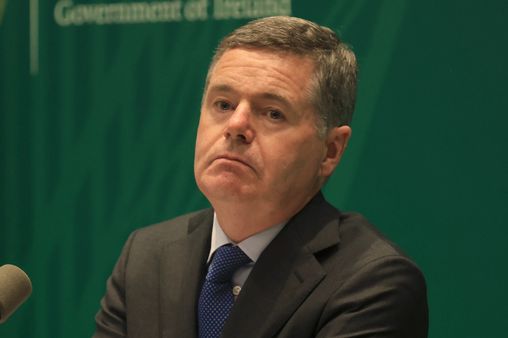Business
Budget 2026: Government Proposes Sugar Tax Increase and Vape Levy

The Irish government is preparing for Budget 2026 with significant proposed changes, including an increase in the sugar tax and the introduction of a new levy on vaping products. These measures aim to address health concerns while generating revenue amid a challenging cost of living environment.
Proposed Changes to Sugar Tax
Since its introduction in 2018, the sugar tax has applied to beverages containing more than 5 grams of added sugar per 100 milliliters. Currently, drinks with over 5 grams incur a tax of 6.6 cents per 330 milliliters, while those exceeding 8 grams are taxed at approximately 9.9 cents per 330 milliliters. The government is considering two options for increasing these rates. The first option proposes raising the lower band by 2.2 cents and the higher band by 3.3 cents per can. The second option suggests a gradual increase, with the lower rate rising by 2.5 cents annually and the upper rate by 5 cents over five years.
According to the Tax Strategy Group, these adjustments could generate an estimated €91 million in additional revenue by 2029.
New Vape Levy Proposal
Alongside changes to the sugar tax, the government is exploring the implementation of a levy on vaping products. Reports indicate that the proposed tax would increase the price of disposable vapes by €1, while a 10 milliliter refill cartridge could double in price from €5 to €10. The Tax Strategy Group estimates that this levy could generate between €46.5 million and €149.9 million annually, contingent on consumer behavior and any potential ban on disposable vapes.
This proposed tax comes after a 50 cent per milliliter increase that took effect earlier this year on nicotine vapes. The government aims to tackle health issues related to vaping and generate additional funding through these measures.
In discussions regarding child welfare, Taoiseach Micheál Martin mentioned the possibility of introducing a second tier of Child Benefit, which could provide families with an additional €285 per month. The Economic and Social Research Institute previously estimated that such a tier could lift approximately 55,000 children out of poverty. Martin stated, “Nothing was off the table,” emphasizing a comprehensive approach to addressing child poverty that includes both financial support and educational initiatives.
As the government prepares for Budget 2026, these proposals reflect an effort to balance fiscal responsibility with the need for social support, particularly in light of ongoing economic pressures faced by families across Ireland.
-

 Top Stories3 months ago
Top Stories3 months agoTributes Surge for 9-Year-Old Leon Briody After Cancer Battle
-

 Entertainment4 months ago
Entertainment4 months agoAimee Osbourne Joins Family for Emotional Tribute to Ozzy
-

 Politics4 months ago
Politics4 months agoDanny Healy-Rae Considers Complaint After Altercation with Garda
-

 Top Stories4 months ago
Top Stories4 months agoIreland Enjoys Summer Heat as Hurricane Erin Approaches Atlantic
-

 World5 months ago
World5 months agoHawaii Commemorates 80 Years Since Hiroshima Bombing with Ceremony
-

 Top Stories3 months ago
Top Stories3 months agoNewcastle West Woman Patricia Foley Found Safe After Urgent Search
-

 Top Stories5 months ago
Top Stories5 months agoFianna Fáil TDs Urgently Consider Maire Geoghegan-Quinn for Presidency
-

 World5 months ago
World5 months agoCouple Convicted of Murdering Two-Year-Old Grandson in Wales
-

 World5 months ago
World5 months agoGaza Aid Distribution Tragedy: 20 Killed Amid Ongoing Violence
-

 World5 months ago
World5 months agoAristocrat Constance Marten and Partner Convicted of Infant Murder
-

 Top Stories4 months ago
Top Stories4 months agoClimbing Errigal: A Must-Do Summer Adventure in Donegal
-

 Top Stories4 months ago
Top Stories4 months agoHike Donegal’s Errigal Mountain NOW for Unforgettable Summer Views









